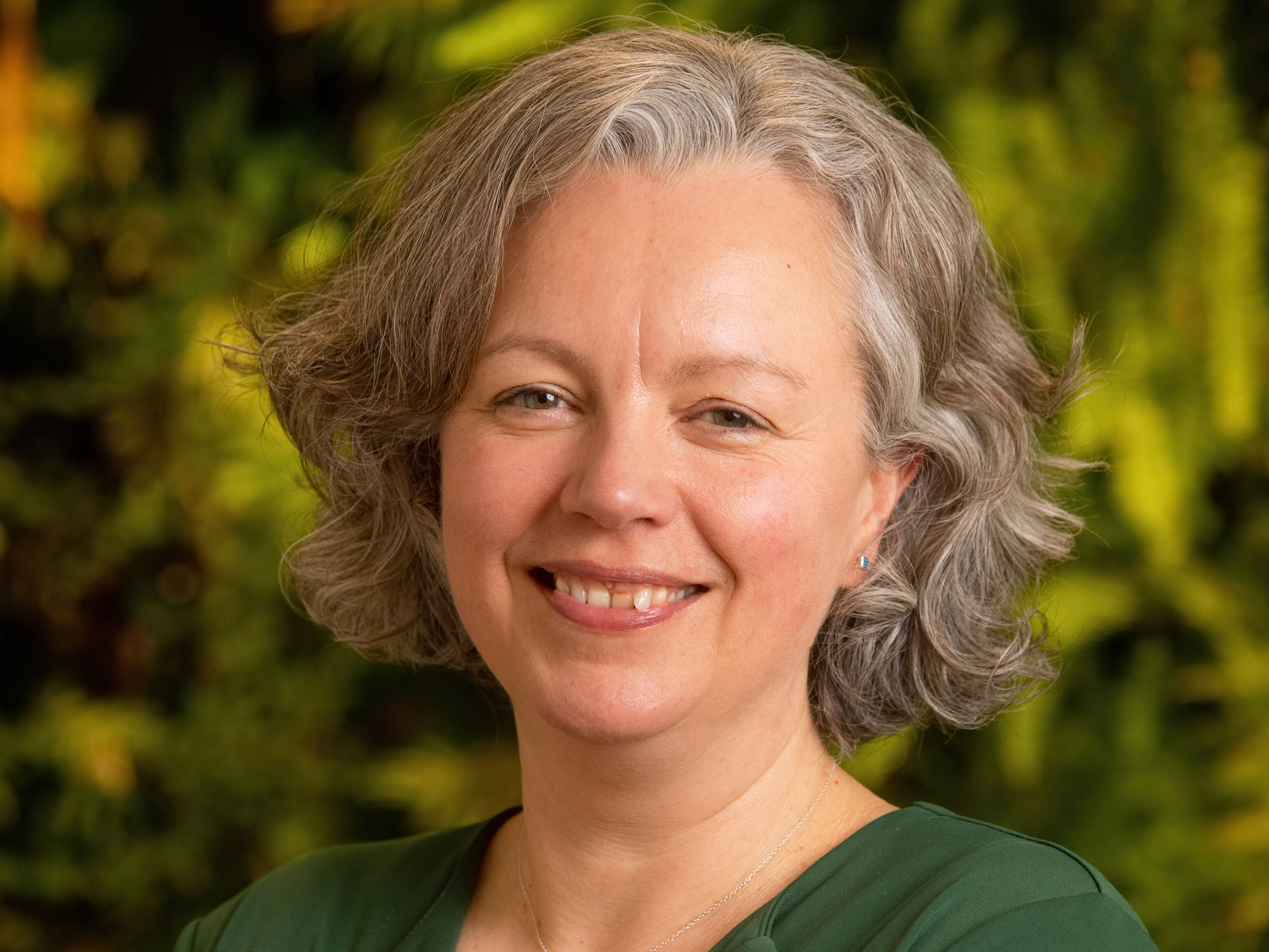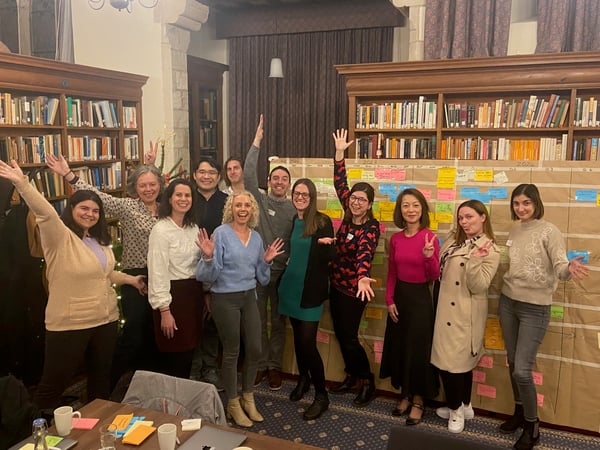17.01.2024 | Published by bit.bio

Name | Mary Vinson
Role | VP Cell Therapy Program Leader
Joined | September 2022
Academic background | BSc & DPhil in cell & molecular biology
Tell us about yourself. What pivotal experiences or roles helped shape your path to becoming a VP in cell therapy?
Professionally, I have worked in pharma and biotech for >25years. After my DPhil I joined GSK in the Neuroscience Research department and stayed for nearly 10 years. I started as a bench scientist and then progressed to leading therapeutic programs in stroke and Alzheimer’s. After that, I moved into biotech and have spent the last 15 years working for a number of different companies - Proximagen, Novacta, Heptares, Autolus, and bit.bio. Over the years I’ve worked on a range of therapeutic modalities - antibodies, small molecules, peptides, CAR-T cells, and now iPSC-derived cell therapy. I’ve also worked on a range of disease areas - stroke, Alzheimer’s (both disease-modifying and symptomatic approaches), Parkinson’s, anti-infectives, cancer, and liver failure. My roles have ranged from research, project management, project leadership & portfolio management. For the most part, the programs I’ve worked on have been at the stage of pre-clinical into phase I clinical trials and proof of concept. This is the stage of development I enjoy the most - it’s when the rubber hits the road and the hypothesis hits reality!
On the personal side, I’m married to Danny and have a daughter and two stepdaughters. I also have a ridiculously beautiful grey cat called Charlie.
Are there any specific moments or projects that significantly influenced your development within the field of cell therapy?
I can pick out two key experiences that have shaped my path and motivation - these are the first project I worked on in the industry and the most recent project prior to joining bit.bio. They have one thing in common which is to take cutting-edge, novel treatments into patients.
My first project at GSK was to identify the neuronal receptor for myelin-associated glycoprotein (MAG), a cell surface adhesion molecule expressed on oligodendrocytes which inhibits neuronal outgrowth. I discovered that one of the antibodies I was working with was actually a functional blocker of MAG and could therefore have therapeutic use in promoting neuronal outgrowth after CNS injury. I went on to lead a program to develop this antibody as a treatment for functional recovery after a stroke. This was at a time when GSK was not in the business of antibody therapeutics and there wasn’t really an understood path within the company. I went on to take the project through candidate selection and into pre-clinical development. The project was impacted by the TeGenero incident (Google it!), but eventually made it into a phase I trial in stroke patients where it had some effect.
The second project to mention was the last one I worked on at Autolus, AUTO4. This was a highly innovative and scientifically fascinating CAR-T cell approach to T cell lymphoma - a disease with no effective treatments. Getting this into a phase I trial had some major challenges, but we did it and eventually got it to a stage where we were seeing significant responses in patients who would otherwise have a very poor prognosis. This was a very rewarding experience.
Both of these projects (among others!) have fired my motivation to keep pushing to take novel treatments through uncharted waters to patients with significant medical need.
How have you seen the landscape of cell therapy evolve throughout your career? What emerging trends or advancements do you find most exciting or promising for the future of cell therapy?
The landscape has changed massively! Back when I started at GSK, cell therapy was not on the radar, certainly within big pharma. GSK was strong in vaccines, but other than that the focus was small molecules, which mirrored the broader pharma world. Antibody therapy was in its infancy with only a handful of products approved by the early 2000s.
I started at Autolus in 2015 and at this time CAR-T cells were just starting to move from academia to industry and there were a very small number of other players in the field. There was nothing on the market and phase I clinical trials had just started, so the clinical development and regulatory path was untrodden. Fast forward to today and there has been a meteoric rise of CAR-T in a very short space of time. The FDA has approved 6 CAR-T products and there are 100s of companies working on CAR-T therapies as well as technologies designed to optimise CAR performance, move to allogeneic, and reduce manufacturing timelines. Although CAR-T offers a great, potentially life-saving treatment option, the cost of the products remains an issue.
iPSC-derived therapy is the next wave of cell therapies and there are parallels to where the CAR-T field was 8 or 10 years ago, except with a much broader therapeutic potential. Although there are already many companies working on iPSC-derived therapeutic approaches, bit.bio’s opti-ox technology is unique and brings many advantages, including the potential for a huge reduction in the cost of cell therapies. This is a very exciting place to me and I believe could revolutionise this next wave of cell therapy.
What leadership qualities do you find most valuable in guiding a successful cell therapy program? For those aspiring to similar roles, what advice would you offer to navigate a career path in this industry?
It is really important to develop as deep an understanding as you can about your program. As a program leader you can’t possibly understand every technical detail across all functions and that shouldn’t be necessary if you have a competent program team. What is critical is developing a sense of ‘what matters’ - What are the clinical and commercial goals? What are the corporate drivers and objectives? What are the assumptions and risks? What are the critical activities? What are the implications of a change in one area across other functions? What critical areas need more attention and support? How does the latest data impact the project? What do the program team need in order to deliver? What do the exec team and board need to know? You need to be able to dig in and (preferably!) prevent or resolve issues wherever they occur across all functions - this could mean using your own knowledge or that of others internally or if necessary, finding the right expertise outside of the company. At bit.bio we are extremely fortunate to have a fantastic combination of internal and external expertise which I believe sets us up for success.
It is critically important to listen to all perspectives. Developing cell therapies takes a very high level of cross-functional integration and collaboration and the path for an iPSC-derived therapy is largely uncharted. No one person has all the answers and there are always perspectives and opinions that you haven’t thought of, so every opinion is worth listening to. That’s why it’s also important to be as inclusive as you can to different styles and personalities within a team, try not to jump to conclusions too quickly and try to create an environment in which people are able to express their views. This is a constant work in progress, but working towards this goal will always improve outcome.
Communication is also key. These are very complex projects and the ability to communicate all aspects of the program is an important skill. This could be rallying the program team around an idea, talking about the program to a more general audience such, discussing the program with regulators, making proposals to the exec team/board or pitching the program to investors. It could involve talking to a small team, a larger audience or committee with carefully polished slides or getting your point across in a chance meeting in the cafe. Whatever the context, communication is the way that you get decisions made and bring people along with you. In some ways, a project is only as good as the way it’s communicated.
In terms of advice to those wanting to develop into a similar role, in addition to the points above, I would say that another important quality is resilience. This is a tough business and biotech can be a rollercoaster with many challenges. It’s important to go for projects that you are genuinely interested in and are truly motivated to drive forward…this will see you through the challenges!

Mary's team at an offside retreat.
What achievements are you most proud of? Looking back, is there any advice you wish you had received earlier in your career that would have been particularly beneficial?
Honestly, the thing I’m most proud of is having achieved a successful balance between career and family. I continue to do my best to drive forward novel therapies to patients in need and at the same time, have managed to turn out a daughter and two step daughters into the world who are decent human beings!
A piece of advice that I think would have helped me is ‘trust your gut’! Remember that the loudest and most assured sounding voices are not always right - especially in this complex area. So I would say ‘trust your gut’…if something doesn’t sound right, question it; if you sense there is an issue somewhere, follow it up; if something in the environment isn’t right, address it.
How do you maintain a work-life balance in a demanding role like yours?
For many years, being a working parent and for a while a single working parent imposed a strict work-life balance. This is like working two jobs (at least!) and means that you don’t have a choice about leaving work on time for example. I actually found that this situation actually improved my focus when at work because I knew I had a limited time to get things done and during that time I did just as well as my peers who appeared to work longer hours.
These days, with the kids grown up, I can be more flexible with my working time. My main stress-management approach is exercise and I go to the gym or swim most mornings before work. Once I’ve done that I can deal with whatever the day throws at me!
What do you enjoy outside working hours?
Primarily anything active - hiking, cycling, the occasional half marathon with minimal training! I like reading, cooking and also enjoy going to gigs and festivals.
What's the culture at bit.bio like?
There is a stronger culture of empowerment and accountability at bit.bio that is unusual for a biotech at this stage and I think this is critical for the creation of high performing teams and will lead to better results. The other major difference is the number of strong female leaders in the company and this was one of the draws to me joining. I know that this will be a key factor in the success of the company and I hope it creates an environment for other women to be successful.